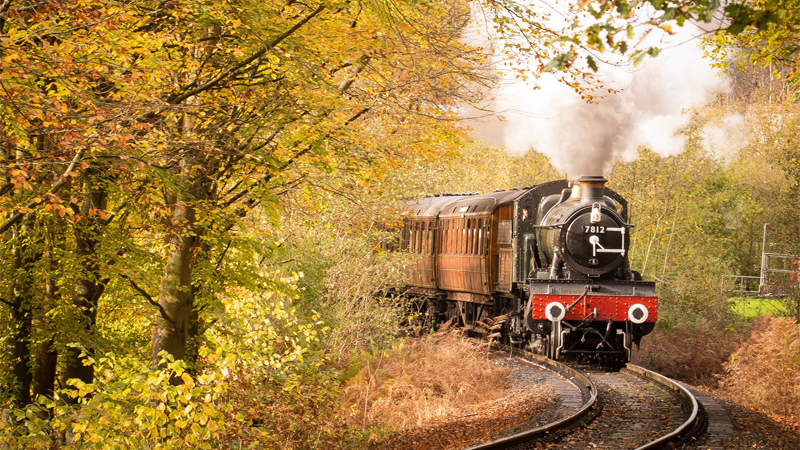|
Several British museums will work alongside the Universities of Sheffield, Leeds and York on a research project examining the links between railways and the slave trade

Lauren Heath-Jones | Planet Attractions | 27 Oct 2021

 The relationship between global trade and steam power has been described as ‘complex’ by a project lead Credit: Guy Sudgen via Unsplash The relationship between global trade and steam power has been described as ‘complex’ by a project lead Credit: Guy Sudgen via Unsplash
A consortium of universities and museums across Yorkshire and the North of England will examine the link between railways and the global slave trade as part of a new research project.
Called Slavery and Steam: steam power, railways and colonialism, the project will explore the economic, social and infrastructural legacy of stream rail and slavery in the late 19th and 20th-centuries.
It was developed by curators from the National Railway Museum in York, the Leeds Industrial Museum and the Industry Museum in Manchester, alongside researchers from the University of Sheffield’s slavery research hub and academics from the Universities of Leeds and York.
‘Complex’ relationship
According to project lead, Professor Jonathan Finch of the University of York, there has been very little research into the history and development of the railways, despite considerable wider research.
Finch described the relationship between global trade and steam power as “complex”, stating that “steam engines replaced wind power on the plantations and waterpower in British cotton mills, steamboats transported raw materials and goods around the globe.”
“Railways were critical to the expansion of colonial power across Asia and Africa, as well as the opening up of the North American interior. Wealth generated in the colonies was a stimulus to industrialisation, long after the abolition of slavery in the UK and US,” he added.
Dr Kate Pangbourne from the University of Leeds’ Institute for Transport Studies is leading the university’s contribution to the project.
“There’s a visible legacy that’s revealed in the geography of our ports, rail infrastructure, and industrial landscapes that deserves closer examination,” she said.
Increased awareness
The project has been gifted a year’s funding from the White Rose University Consortium, a trio of universities based in the North of England including the University of York, the University of Sheffield and the University of Leeds.
It’s hoped that the grant will increase awareness of the links between slavery and the development of steam-powered trains and railways in Europe and the colonies, as well as inspire future research.
In the longer term, the project will aim to further academic research into Britain’s colonial history and generate peer-reviewed research articles.
As part of the project, the research team will publish a handbook and share its findings with the general public through digital content and workshops.
Dr Oliver Betts, research lead at the National Railway Museum, described the project as the latest in a series of partnerships between the museum and academics.
“Across the Science Museum Group through projects such as this, we are examining Britain’s colonial past to look again at the stories we tell, the voices we represent, and the challenges we face in presenting complex, hitherto untold stories to the public,” he said.
Museums and galleries
|
|






Supplier Showcase 2025: The biggest attractions projects landing worldwide this year
|